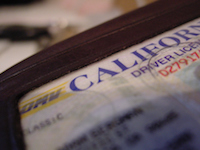LAWSUITS NEWS & LEGAL INFORMATION
Privacy Violation Lawsuits
Were you looking for Data Breach lawsuits?
By Heidi Turner
More and more companies face lawsuits alleging their actions or negligence have compromised people's privacy. This privacy invasion can occur through internet data breaches, misuse of targeted advertising, or illegal monitoring of private communications. Even when purchases are made in person, there is a possibility of a breach of privacy if the retailer illegally collects customer zip codes or other identifying information. There are laws designed to protect consumers from illegal privacy breaches, but consumers may have to file lawsuits to ensure their rights are protected.
FREE PRIVACY VIOLATION LAWSUIT EVALUATION
Send your Privacy Violation claim to a lawyer who will review your claim at NO COST or obligation.
GET LEGAL HELP NOW
GET LEGAL HELP NOW
Invasion of Privacy
There are four main categories of invasion of privacy claims (although these vary depending on individual state laws):
- Intrusion of Solitude—any form of intrusion where a person has a reasonable expectation of privacy (typical complaints might include peeping Toms)
- Appropriation of Name or Likeness—situations in which a person's name or likeness is used without his or her consent to benefit another party
- Public Disclosure of Private Facts—when a person's private information is made public where there is no public relevance
- False Light—When private information is released that is not necessarily false but is misleading.
Privacy Laws
 There are laws designed to protect the privacy of individuals, although these laws are evolving as the use of the Internet and the collection of consumers' personal information becomes more widespread.
There are laws designed to protect the privacy of individuals, although these laws are evolving as the use of the Internet and the collection of consumers' personal information becomes more widespread. The Privacy Act (1974)—Protects individuals against an invasion of privacy from federal agencies.
The Electronic Communications Privacy Act (1986; ECPA)—Prevents the government and other third parties from accessing or sharing communications without proper authorization. The act protects communications that are stored as well as those that are in transit.
Financial Privacy Rule—Governs how financial institutions can collect and disclose consumer financial information (part of the Gramm-Leach-Bliley Act).
Safeguards Rule—Requires financial institutions to protect customer information (part of the Gramm-Leach-Bliley Act).
Various other laws, including the Health Information Portability and Accountability Act (HIPAA) and the Children's Online Privacy Protection Act (COPPA) also protect Americans' private information.
State Laws
Internet Data Breaches
Online Privacy Lawsuits
Facebook In 2014, a class action privacy lawsuit was filed against Facebook for allegedly data mining private messages, in violation of the Electronic Communications Privacy Act. The lawsuit was filed by Matthew Campbell and claims Facebook uses private information to allow targeted advertising. In May 2016, the lawsuit was partially certified as a class action.
Snapchat In 2016, a lawsuit seeking class action status was filed against Snapchat, alleging users' biometric information was stored and used without informed consent. The lawsuit, filed by Jose Luis Martinez and Malcolm Neal, claims their biometric information was compromised, which puts them at risk of identity theft and is a violation of the Illinois Biometric Information Privacy Act.
Yahoo In 2013, a lawsuit was filed against Yahoo, alleging the company's monitoring of emails involving people who did not have a Yahoo account for targeted advertising purposes violated the California Invasion of Privacy Act. In 2016, that lawsuit was settled, with Yahoo agreeing to scan emails only while they are at rest on servers, rather than when the email is in transit.
Zip Code Collection Some retailers, including Kohl's, J Crew and Urban Outfitters, have come under fire for illegally collecting or using customer information obtained during check out at a store location. In some cases, retailers are accused of illegally requiring customers to give a zip code as a condition of paying by credit card, while in other cases they are accused of using zip code and payment information to send unwanted mail to consumers. (Not all collection of zip codes at a checkout is illegal; laws vary by state.)
Hulk Hogan Invasion of Privacy In 2016, Hulk Hogan was awarded $140 million by a jury—an award later upheld by a judge—after he claimed Gawker Media violated his privacy by including a photo of him involved in sexual intercourse with a friend's wife alongside an article about celebrity sex tapes.
Privacy Violation Legal Help
If you or a loved one has suffered similar damages or injuries, please click the link below and your complaint will be sent to a lawyer who may evaluate your claim at no cost or obligation.Last updated on
PRIVACY VIOLATION LEGAL ARTICLES AND INTERVIEWS
Google Gmail is “Creepy”, says a Non-Gmail User Filing Complaint

Google Mail California Claims Expire end of September: File Now, Attorney Urges

People Angry with Department of Motor Vehicles Violating their Privacy


October 11, 2018
San Francisco, CA: If you are one of the 1.4 billion Gmail users around the globe, you are likely more than familiar with annoying online ads. But so too are email users who didn’t sign up to Gmail. People like Rick, who is fed up with barrages of ads. And people like Rick are filing Google complaints. READ MORE
Google Mail California Claims Expire end of September: File Now, Attorney Urges

September 14, 2018
Attorney Ray Gallo has filed a lawsuit against Google on behalf of individuals seeking compensation for invasion of privacy. Gallo says that if you do not use Gmail but sent an email to a Gmail user, Google intercepted it and processed it for advertising purposes, and you may be owed $5,000 under the California Invasion of Privacy Act. READ MORE
People Angry with Department of Motor Vehicles Violating their Privacy

January 19, 2017
Charlotte, NC: “It’s reassuring that attorneys are trying to stop the DMV from selling our private information,” says Gary. “I wondered how these companies got my address and phone number—until I read on LawyersandSettlements about an attorney filing complaints about DPPA violations.” READ MORE
READ MORE Consumer Fraud Settlements and Legal News
READ MORE Media/Telecom Settlements and Legal News
READ MORE Media/Telecom Settlements and Legal News

READER COMMENTS
June Detrick
on
Tracy Brokmeier
on